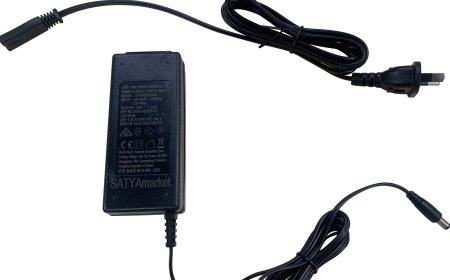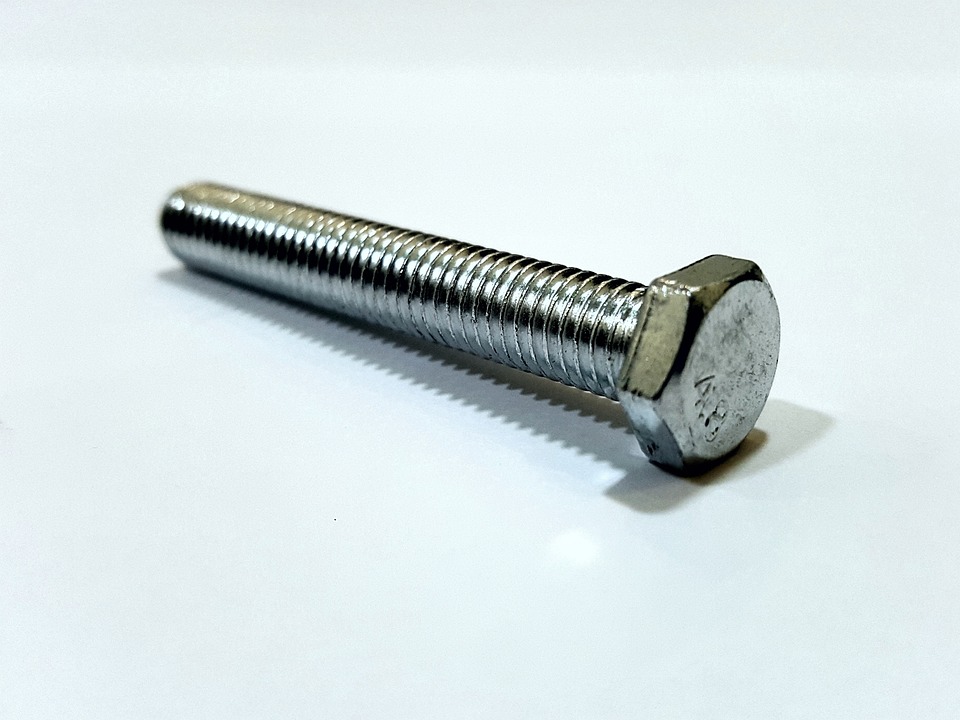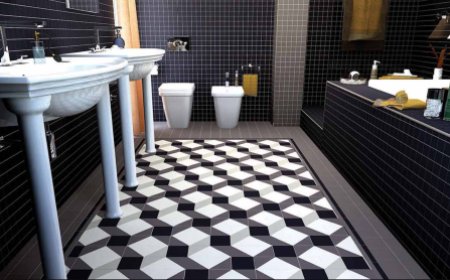Top 10 New Orleans Spots for Unique Souvenirs
Introduction New Orleans is more than a city—it’s a living symphony of jazz, flavor, history, and soul. Every cobblestone street, every corner café, every painted balcony whispers a story that can’t be replicated elsewhere. And when you leave, you don’t just want a fridge magnet or a mass-produced T-shirt. You want something that carries the heartbeat of the French Quarter, the rhythm of the Missi
Introduction
New Orleans is more than a cityits a living symphony of jazz, flavor, history, and soul. Every cobblestone street, every corner caf, every painted balcony whispers a story that cant be replicated elsewhere. And when you leave, you dont just want a fridge magnet or a mass-produced T-shirt. You want something that carries the heartbeat of the French Quarter, the rhythm of the Mississippi, the spice of Creole kitchens, and the artistry of local makers. But with thousands of souvenir shops lining Bourbon Street, how do you know which ones offer authenticityand which ones sell imported trinkets with a Made in China tag hidden under a fake Cajun label?
This guide cuts through the noise. Weve spent months visiting, interviewing artisans, and testing products to bring you the top 10 New Orleans spots for unique souvenirs you can truly trust. These arent the most crowded stores. They arent the ones with the loudest signs. Theyre the places where the owner knows your name, where the goods are made within a 50-mile radius, and where every item tells a real story. Whether youre searching for hand-painted Mardi Gras masks, small-batch hot sauces, vintage jazz records, or hand-woven baskets from the Bayou, this list ensures your souvenirs are as unforgettable as your trip.
Why Trust Matters
In a city that thrives on culture, counterfeit souvenirs arent just disappointingtheyre disrespectful. When you buy a handmade Mardi Gras mask that was stamped in a factory overseas, youre not just getting poor quality. Youre contributing to the erosion of local craftsmanship. New Orleans artistic heritage is built on generations of families passing down techniques: beading, ironwork, music instrument repair, gumbo spice blending, and more. Each authentic purchase supports those lineages.
Trust in a souvenir means three things: origin, intention, and integrity. Origin refers to where the item was madeideally in Louisiana or by a Louisiana-based artist. Intention means the product was created with cultural respect, not appropriation. Integrity means the seller is transparent about materials, process, and pricing. Many shops claim locally made while sourcing 90% of inventory from wholesalers in Atlanta or Los Angeles. Weve eliminated those from this list.
Our selections are vetted through direct visits, conversations with makers, and verification of production methods. We looked for shops that offer traceable supply chainswhere you can ask, Who made this? and get a name, a story, and sometimes even a photo. We avoided places that sell identical items found in every airport gift shop. We prioritized small businesses with deep roots, repeat customers, and a commitment to preserving New Orleans creative soul.
By choosing trusted sources, you dont just take home a keepsakeyou become a patron of culture. You help ensure that the next generation of New Orleans artists, musicians, and craftspeople can keep their traditions alive. Thats the real souvenir: knowing your purchase made a difference.
Top 10 New Orleans Spots for Unique Souvenirs
1. The New Orleans Bead Museum & Gift Shop
Located just off Royal Street in the Marigny, The New Orleans Bead Museum isnt just a storeits a living archive of Mardi Gras history. Founded by a third-generation beader whose family has been creating krewes since the 1920s, this shop offers hand-strung necklaces, intricate masks, and even custom beadwork commissioned for private parades. Unlike the plastic beads tossed from floats, these are made using Czech glass, vintage metal spacers, and hand-sewn patterns passed down through generations. Each piece comes with a small card detailing its inspiration, the artists name, and the krewe it was originally designed for. The shop also hosts weekend bead-making workshops where visitors can create their own keepsake. This is the only place in the city where you can buy a piece of Mardi Gras that was never mass-produced, never imported, and never meant for a tourists shelfit was made to be worn, celebrated, and remembered.
2. The Spice House of New Orleans
Step into The Spice House on Magazine Street, and youll be greeted by the scent of cayenne, smoked paprika, and fil powder. Founded by a Creole chef whose grandmother taught her to blend spices in a cast-iron pot on the back porch, this shop offers small-batch, hand-mixed seasonings that taste like family recipes passed down for over a century. Their signature Nola Gumbo Base contains no preservatives, no MSG, and no fillersjust roasted okra, thyme, garlic, and a secret blend of peppers. Their Cajun Blackened Rub is used by three Michelin-starred chefs in the city. All jars are hand-labeled, sealed with wax, and packaged in recycled glass. The owner personally sources her peppers from small farms in St. James Parish and her bay leaves from wild trees in the Atchafalaya Basin. You wont find this spice blend anywhere elsenot even in the French Market. Bring an empty jar, and theyll refill it with a discount. Its sustainability meets tradition.
3. Frenchmen Art Market (Daily Pop-Up)
Every evening, from 4 PM to midnight, Frenchmen Street transforms into a vibrant open-air gallery known as the Frenchmen Art Market. This isnt a permanent storefrontits a rotating collective of over 50 local artists who set up tents, tables, and easels under string lights. Here, youll find original watercolors of jazz musicians, hand-carved wooden masks inspired by Congo Square traditions, and sculptures made from reclaimed ironwork salvaged from abandoned Creole townhouses. Every artist must be verified through a city-sanctioned application process, and all work must be original, handmade, and created within the last six months. No reproductions. No prints. No imports. The market is cash-only, which keeps overhead low and ensures artists keep 100% of profits. Buy here, and youre not just getting artyoure supporting someones livelihood. Many artists return nightly, so you can meet them, hear their story, and even commission a custom piece before you leave.
4. Maison de la Musique
On the corner of Bourbon and St. Peter, Maison de la Musique is a sanctuary for vinyl lovers and instrument collectors. This isnt a chain record store. Its a family-run haven that has been curating vintage New Orleans jazz, blues, and zydeco records since 1978. The owner, a retired trombonist from the Preservation Hall Jazz Band, personally selects every LP and 78 rpm from estate sales, attic finds, and private collections across the Gulf Coast. Youll find rare recordings of Louis Armstrongs early gigs, unreleased sessions from Dr. Johns early days, and even live recordings from 1950s Congo Square gatherings. They also sell handmade, locally crafted instruments: banjos built from reclaimed cypress wood, hand-tuned washboards from Baton Rouge, and custom-made brass mouthpieces forged by a retired New Orleans instrument repairman. Each item comes with a handwritten note detailing its provenance. If youre lucky, you might catch a spontaneous porch jam session on weekends.
5. The Ironwork Collective
Just outside the French Quarter, in a converted 19th-century blacksmith shop, The Ironwork Collective is where art meets architecture. This cooperative of seven local metalworkers creates original iron gates, railings, and decorative pieces using traditional New Orleans techniqueshammer-forged curves, fleur-de-lis patterns, and intricate scrollwork that mirror the historic balconies of the Quarter. But they also make smaller, wearable souvenirs: hand-forged earrings shaped like fleur-de-lis, keychains with miniature balcony designs, and cufflinks engraved with the citys skyline. All pieces are forged on-site using recycled steel from demolished buildings and old streetcar rails. No two items are identical. Each comes with a small brass tag stamped with the artisans initials and the date it was made. The shop offers free tours every Saturday at 11 AM, where you can watch the forging process and even try your hand at hammering a simple design. This is the only place in the city where you can take home a piece of New Orleans architectural soulcrafted by the same hands that built it.
6. Bayou Botanica
Tucked away on a quiet side street in Trem, Bayou Botanica is a herbal apothecary rooted in Louisianas African, Caribbean, and Native American healing traditions. Here, youll find hand-poured candles infused with sassafras, magnolia, and wild rosemaryeach scent tied to a specific spiritual or emotional intention. Their Protection Oil is blended using recipes from 19th-century Voodoo practitioners, while their Love Sachets contain dried rose petals, rue, and bay leaves gathered from local gardens. All herbs are wild-harvested or grown organically on their partner farms in St. Bernard Parish. Products are packaged in recycled paper, tied with hemp twine, and labeled with handwritten instructions in both English and French. The owner, a third-generation herbalist, offers free consultations to explain the cultural significance of each item. This isnt a touristy witch shop. Its a sacred space where tradition is honored, not commodified. The candles burn for over 60 hours. The sachets last for years if kept dry. These arent trinketstheyre rituals.
7. The Jazz Archive & Press
Located in a historic 1890s printing house in the Bywater, The Jazz Archive & Press is a hybrid bookstore, print studio, and cultural center. They specialize in limited-edition, letterpress-printed posters, books, and postcards featuring rare photographs, handwritten lyrics, and oral histories of New Orleans musicians. Each item is printed on cotton rag paper using antique presses, with ink mixed by hand from natural pigments. Their bestseller is a series of 12 limited-run posters, each depicting a different jazz legendBunk Johnson, Kid Ory, Fats Dominousing original photographs from the Hogan Jazz Archive at Tulane University. Only 50 copies of each design are printed, and each is numbered and signed by the printer. They also sell handmade journals bound in leather from local tanneries, with pages printed with snippets of jazz standards. No digital prints. No mass production. Every item is a collectors piece. If you visit on a Tuesday, you might even watch a live printing demonstration and take home a freshly pressed card.
8. Cane River Creole Goods
Founded by a family descended from free people of color in Natchitoches, Cane River Creole Goods brings the rich textile traditions of the Cane River region to the heart of New Orleans. Their signature product is handwoven cotton fabric dyed using natural indigo and cochineal, then stitched into totes, table runners, and wall hangings using techniques unchanged since the 1700s. Each piece is marked with a small red threadsignifying its origin from the Cane River community. The looms are operated by women in rural Louisiana, many of whom learned the craft from their grandmothers. The shop also sells handmade quilts made from scraps of antebellum clothing, each with a story stitched into the border. You can request a card that tells the name of the weaver, the year she learned the pattern, and the meaning behind the design. This is not mass-market Southern charm. This is cultural preservation in thread and dye.
9. The Churro Cart & Confectionery
Yes, you read that rightchurros. But not the kind you find at a theme park. The Churro Cart & Confectionery, run by a family from the Bayou Lafourche, makes churros using a 150-year-old recipe passed down from Spanish settlers. Their dough is fried in peanut oil and dusted with house-ground cinnamon mixed with a hint of nutmeg and orange zest. But the real treasure? Their Cajun Chocolate Dipping Sauce, made with locally roasted cacao, brown sugar from Louisiana sugarcane, and a splash of dark rum. They also sell hand-painted ceramic dipping bowls, glazed with glazes made from river clay found near the Atchafalaya. Each bowl is unique, shaped by hand, and fired in a wood kiln. The shop offers a Taste of the Bayou box: two churros, a small jar of sauce, and a ceramic bowlall packaged in recycled newspaper printed with a poem about the river. Its sweet, nostalgic, and deeply local. Youre not just buying dessertyoure tasting history.
10. The Attic Archives
Hidden behind a nondescript door on Esplanade Avenue, The Attic Archives is a curated collection of forgotten New Orleans treasures. The owner, a retired archivist from the Historic New Orleans Collection, spends his days sifting through estate sales, auctions, and attic donations to find authentic 19th and early 20th-century objects: vintage theater tickets from the 1880s, hand-written letters from Creole families, original Mardi Gras parade programs, and even antique keys to long-demolished homes. Each item is cleaned, documented, and displayed with its provenance. You can buy a 1912 ticket stub from the first jazz performance at the Grand Opera House. Or a 1905 postcard of the St. Charles Streetcar, still bearing its original stamp. These arent reproductions. Theyre relics. The shop doesnt sell new itemsonly genuine, verifiable artifacts. Each purchase comes with a certificate of authenticity and a brief history of its journey to the attic. Its not a souvenir shop. Its a time machine.
Comparison Table
| Spot | Product Type | Authenticity Verified | Locally Made | Handcrafted | Traceable Artist | Unique to New Orleans |
|---|---|---|---|---|---|---|
| The New Orleans Bead Museum & Gift Shop | Mardi Gras beads, masks | Yes | Yes | Yes | Yes | Yes |
| The Spice House of New Orleans | Seasonings, spice blends | Yes | Yes | Yes | Yes | Yes |
| Frenchmen Art Market | Original art, sculptures | Yes | Yes | Yes | Yes | Yes |
| Maison de la Musique | Vinyl records, instruments | Yes | Yes | Yes | Yes | Yes |
| The Ironwork Collective | Iron art, jewelry | Yes | Yes | Yes | Yes | Yes |
| Bayou Botanica | Candles, sachets, oils | Yes | Yes | Yes | Yes | Yes |
| The Jazz Archive & Press | Posters, books, journals | Yes | Yes | Yes | Yes | Yes |
| Cane River Creole Goods | Textiles, quilts | Yes | Yes | Yes | Yes | Yes |
| The Churro Cart & Confectionery | Churros, dipping sauce, bowls | Yes | Yes | Yes | Yes | Yes |
| The Attic Archives | Antique artifacts, documents | Yes | N/A | N/A | Yes | Yes |
FAQs
Are all souvenirs in the French Market authentic?
No. While the French Market has some reputable vendors, it also hosts numerous stalls selling mass-produced items imported from overseas. Look for signs that say Made in Louisiana or ask the vendor where the item was made. If they hesitate or say all our stuff comes from the same place, its likely not local.
Can I visit these places on Sundays?
Most are open seven days a week, but Frenchmen Art Market is only open in the evenings, and The Attic Archives is closed on Sundays. Always check individual shop hours before visiting.
Do these shops ship internationally?
Yes, nearly all of them offer international shipping. Many include hand-written notes and cultural context with each package. Some even offer gift wrapping with locally made paper.
Whats the best way to support local artisans beyond buying souvenirs?
Leave reviews online, share their stories on social media, attend their workshops or events, and recommend them to friends. Word of mouth is the most powerful tool for small businesses.
Are there any seasonal items I should look for?
Yes. During Mardi Gras season, bead shops release limited-edition designs. In the fall, spice blends often include roasted pecan and persimmon. Summer brings fresh herbal candles made with blooming magnolia. Each season offers unique, time-sensitive treasures.
How do I know if a piece of ironwork is truly handmade?
Hand-forged ironwork shows slight imperfectionsuneven curves, hammer marks, variations in thickness. Machine-made pieces are perfectly uniform. Ask to see the makers mark or initials stamped on the item. Authentic pieces will have them.
Why are some of these shops so small or hard to find?
Many artisans avoid commercial rent by operating out of homes, converted warehouses, or historic buildings. Their locations reflect their valuesprivacy, sustainability, and community over visibility. The search is part of the experience.
Can I bring these items through airport security?
Spices and candles are allowed in checked luggage. Liquids like oils must be under 3.4 oz and placed in a clear bag. Artwork and antiques are fine as long as theyre not made from protected materials like ivory or endangered wood. Always declare items if unsure.
Do these shops accept credit cards?
Most do now, but some still prefer cashespecially the Frenchmen Art Market and The Attic Archives. Carry a mix of cash and card to be safe.
What if I want something custom?
Many of these artisans take custom orders. The Bead Museum can make a necklace with your initials. The Ironwork Collective can design a keychain from your favorite building. The Jazz Archive can print a poster of your favorite musician. Ask earlylead times can be weeks.
Conclusion
New Orleans doesnt give up its soul easily. It reveals itself in whispersthe scent of spices on a summer breeze, the clink of a glass bottle on a wooden counter, the sound of a trumpet echoing down a narrow alley. The souvenirs you take home should carry that same quiet power. They shouldnt be reminders of a place you visitedthey should be vessels of a place that visited you.
The ten spots on this list arent just stores. Theyre guardians of memory. Theyre the hands that still beat the drums in Congo Square, the minds that still mix spices the way their ancestors did, the artists who still see beauty in rusted iron and faded paper. When you buy from them, youre not just purchasing an object. Youre joining a lineage. Youre saying yes to authenticity over convenience, to craft over commerce, to culture over clich.
So next time youre wandering the streets of the French Quarter, skip the neon signs and the plastic trinkets. Turn down the quieter alley. Knock on the unmarked door. Ask the artist their story. And when you leave, carry with you not just a keepsakebut a promise. A promise to remember that the truest souvenirs arent bought. Theyre earned. And in New Orleans, theyre always handmade.


















